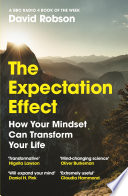

The core premise of 'The Expectation Effect' is that our beliefs and expectations can significantly shape our experiences and outcomes. This concept is rooted in psychological research that demonstrates how expectations can influence our physical and mental performance. When we believe that we can achieve something, we are more likely to put in the effort and resources necessary to achieve it. Conversely, negative expectations can lead to self-fulfilling prophecies, where our fears and doubts hinder our performance. The book emphasizes the importance of cultivating positive expectations to enhance our well-being and success.
Continue readingThe book delves into the idea that our mindset plays a crucial role in how we interpret and respond to challenges. A growth mindset, characterized by the belief that abilities and intelligence can be developed, leads to greater resilience and adaptability. In contrast, a fixed mindset can limit potential and discourage risk-taking. The author provides strategies for shifting towards a more positive and growth-oriented mindset, which can help individuals overcome obstacles and achieve their goals.
Continue readingContext is a significant factor in shaping our expectations and experiences. The book explores how environmental cues, social norms, and cultural factors can influence our beliefs about what is possible. For instance, being in a supportive environment can boost confidence and motivation, while a negative context can lead to doubt and fear. Understanding the role of context allows individuals to create more favorable conditions for achieving their expectations and aspirations.
Continue readingOne of the most compelling aspects of 'The Expectation Effect' is its exploration of the placebo phenomenon. The author discusses how belief in the efficacy of a treatment can lead to real physiological changes in the body. This concept extends beyond medicine to various areas of life, suggesting that our expectations can shape our health, performance, and overall well-being. By harnessing the power of expectation, individuals can potentially enhance their physical and mental health outcomes.
Continue readingThe book highlights the impact of expectations in educational settings. Teachers' beliefs about their students' abilities can significantly influence student performance. Higher expectations often lead to better outcomes, while low expectations can create a cycle of underachievement. The author advocates for fostering a culture of high expectations in educational institutions to empower students and enhance learning. This concept can also be applied to parenting and mentorship, where positive reinforcement can encourage growth and development.
Continue readingLeadership is another area where expectations play a critical role. The book discusses how leaders' expectations can shape team dynamics and performance. When leaders communicate high expectations and provide support, team members are more likely to rise to the occasion. Conversely, if leaders harbor low expectations, it can lead to disengagement and poor performance. The author provides insights into how leaders can cultivate a positive expectation culture within their teams to drive success.
Continue readingFinally, 'The Expectation Effect' offers practical strategies for individuals to cultivate positive expectations in their lives. This includes techniques such as visualization, affirmations, and setting specific, achievable goals. By actively working to shift their mindset and beliefs, individuals can create a self-reinforcing cycle of positive expectations that leads to improved outcomes in various areas of life, from personal health to professional success.
Continue readingThe reading time for The Expectation Effect depends on the reader's pace. However, this concise book summary covers the 7 key ideas from The Expectation Effect, allowing you to quickly understand the main concepts, insights, and practical applications in around 21 min.
The Expectation Effect is definitely worth reading. The book covers essential topics including The Power of Expectations, Mindset Matters, The Role of Context, providing practical insights and actionable advice. Whether you read the full book or our concise summary, The Expectation Effect delivers valuable knowledge that can help you improve your understanding and apply these concepts in your personal or professional life.
The Expectation Effect was written by David Robson.
If you enjoyed The Expectation Effect by David Robson and want to explore similar topics or deepen your understanding, we highly recommend these related book summaries:
These books cover related themes, complementary concepts, and will help you build upon the knowledge gained from The Expectation Effect. Each of these summaries provides concise insights that can further enhance your understanding and practical application of the ideas presented in The Expectation Effect.